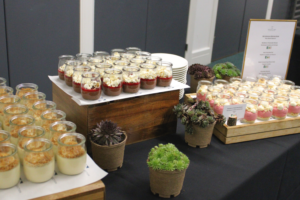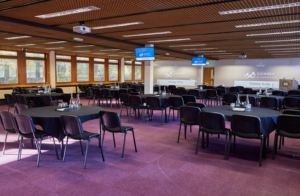
The great recruitment challenge: strategies for a strong future
Recruitment is one of the hottest topics in the events industry right now, as venues and organisers strive to meet the massive surge in demand for live meetings, against a backdrop of staff shortages. Joanne Barratt, MD of The Venues Collection and Lime Venue Portfolio was interviewed by M&IT and shares her strategies for human resourcing for a strong future…
It’s no secret that the hospitality industry continues to grapple with the pandemic’s legacy.
After what feels like a lifetime of Zoom calls, organisations are desperate to reconnect with their staff in real space, to organise hands-on training and to arrange postponed celebrations. The events industry as a whole is expanding: our own group is on course to match our 2019 figures by the end of this year, all of which is hugely exciting.
The less good news is that venues up and down the country are experiencing severe staffing shortages. We’ve been fire fighting for two years and many people who left to find alternative work during Covid haven’t returned to the industry.
However, employment is much more about long-term structural planning than merely filling gaps. The experts in management education tell us that leaders should focus on recruiting and retaining the 25-34 year olds, so we’re looking carefully at what we can offer that group and working out how we can help applicants make choices that will produce the right fit for both them and us.
Work-life balance
We’ve already noticed a difference in preferences amongst the younger age group, who are less keen on moving from a venue in one part of the country to a sister property elsewhere. While my own generation were happy to pack our bags and try a new location, today’s 24-34 year-olds are keener to make a home in one place and establish a local social life.
We can adapt to this, and we understand that work-life balance is a core value for this group. We are actively working with staff members who want shorter working weeks and indeed we can see the benefits of bringing in other people to support that. It’s even in our interests to do so because we can create opportunities for people to work one or two days a week in another department and pick up new experience and skills.
Knowledge and attributes
Newcomers often enter the industry envisaging the fun and glamour of planning a wedding or organising a function, but the sheer multiplicity of tasks involved and the pressure of short lead times usually come as a big shock.
It really boils down to two quite distinct skill sets: in our sales teams we look for applicants who are naturally gregarious with persuasive communication skills and the ability to understand or discover what a client is looking for, at the same time spotting opportunities for upselling.
In our event planning departments, we need people with the meticulous attention to detail required to cover every aspect of organising an event – from individual guests’ dietary requirements to providing the right AV production equipment.
Career pathways
We recognise that many smart young people don’t want to be saddled with 40-50 thousand pounds of university debt and have made the decision to follow a more practical career path. Those people are attractive to us because after two years, they’ll have the hands-on experience as well as the qualifications to become real assets to our business.
That’s why in each of our units we offer a minimum of two apprenticeship places. This gives young recruits pathways for career progression while acquiring valuable experience. At the same time, it helps our venues to future-proof their business.
Go back to other articles


